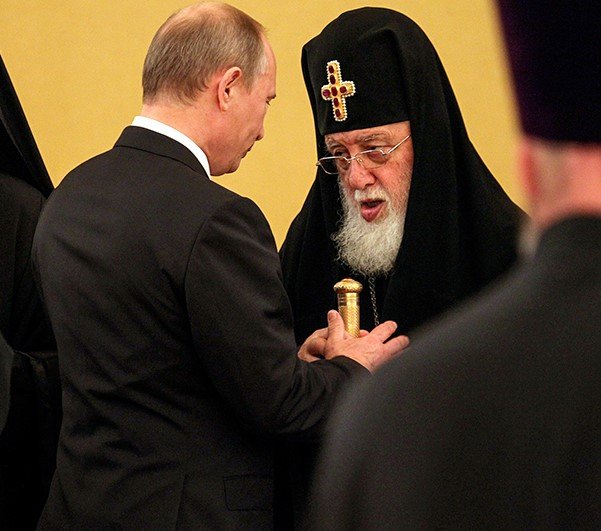The Georgian government has proposed a significant constitutional amendment to declare Orthodox Christianity as the state religion. This proposal, put forth by the ruling Georgian Dream party, has sparked a debate within the country. The Patriarchate of the Georgian Orthodox Church is currently deliberating on this proposal, which aims to strengthen the church’s role and status. However, the proposal has also raised concerns about the potential implications for the church’s independence and the broader societal impact.
Government’s Proposal and Its Implications
The Georgian Dream party’s proposal to declare Orthodox Christianity as the state religion is seen as a move to reinforce national values and traditions. The party’s spokesperson, Andria Jagmaidze, praised the government’s commitment to these ideals. He emphasized that the proposal reflects the government’s desire to further elevate the church’s status and role in society. This move is part of a broader strategy to promote peace and uphold traditional values.
However, the proposal has not been universally welcomed. Critics argue that it could lead to the institutional subordination of the church to the state. Archbishop Zenon Iarajuli, a high-ranking church official, has voiced his opposition, stating that the church’s independence is crucial, especially during times of state-induced crises. The debate highlights the delicate balance between promoting national values and maintaining the church’s autonomy.

The proposal also comes at a time when the Georgian Dream party is pushing for other controversial measures, such as banning “LGBT propaganda” and strengthening family values. These initiatives have further polarized public opinion and raised questions about the party’s broader agenda. The outcome of this proposal will have significant implications for the relationship between the church and the state in Georgia.
Church’s Response and Internal Deliberations
The Patriarchate of the Georgian Orthodox Church has taken a cautious approach to the government’s proposal. While acknowledging the government’s intentions, church officials have expressed the need for further deliberation. Andria Jagmaidze, the church’s spokesperson, mentioned that the proposal requires a thorough discussion within the church’s governing bodies. A broader meeting is scheduled to take place to address the various concerns and implications of the proposal.
Several high-ranking clergy members have already voiced their reservations. Giorgi Zviadadze, a prominent church official, emphasized the importance of maintaining the current legal model that defines the relationship between the church and the state. He argued that the existing arrangement, established by a 2002 constitutional amendment, provides the church with a special status that should not be altered. This sentiment is echoed by other members of the Holy Synod, the church’s ruling body.
The church’s internal deliberations reflect a broader concern about the potential risks of the proposal. There is a fear that declaring Orthodoxy as the state religion could undermine the church’s independence and lead to increased state control. The church’s leadership is keen to ensure that any changes to its status do not compromise its autonomy or its ability to serve its followers effectively.
Public Reaction and Future Prospects
The public reaction to the proposal has been mixed. Supporters argue that declaring Orthodoxy as the state religion would reinforce Georgia’s national identity and cultural heritage. They believe that the church plays a vital role in preserving the country’s traditions and values. For many, the proposal is seen as a positive step towards strengthening the church’s influence in society.
On the other hand, opponents of the proposal raise concerns about its potential impact on religious freedom and pluralism. They argue that such a move could marginalize other religious communities and undermine the principles of a secular state. The debate has sparked discussions about the role of religion in public life and the need to balance tradition with modern democratic values.
As the Patriarchate continues its deliberations, the future of the proposal remains uncertain. The church’s leadership is expected to weigh the potential benefits and risks carefully before making a final decision. The outcome will have far-reaching implications for the relationship between the church and the state in Georgia. It will also shape the broader discourse on national identity, religious freedom, and the role of religion in society.
